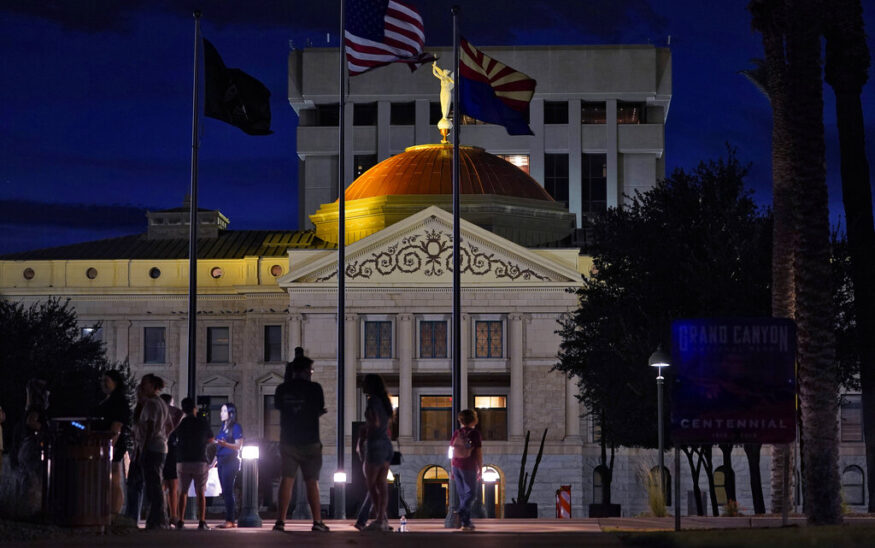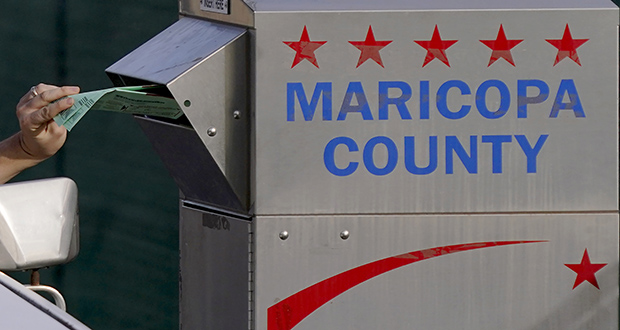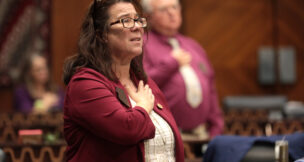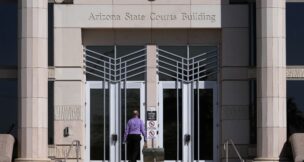Lawmakers’ ballot measures block election reform
By Mark Cable//August 22, 2024//
Lawmakers’ ballot measures block election reform
By Mark Cable//August 22, 2024//
In an opinion published in the Arizona Capitol Times on Aug. 1, 2024, “Election Reform Voters Have Been Waiting for, Finally”, Al Bell correctly argued that Proposition 140, better known as the Make Elections Fair Act, represents an opportunity to improve both our elections and our state government.
Unfortunately, just passing Make Elections Fair this election is not enough. The state Legislature has referred several propositions to the ballot to undermine efforts at reform. It is unsurprising that those who have benefited from the status quo wish to keep things as they are. Here are three legislative referrals that voters need to be aware of in addition to Make Elections Fair.

Proposition 133 is the Legislature’s attempt to permanently enshrine the current partisan primary system, which is precisely what the Make Elections Fair Initiative is trying to reform. The proposition is worded to outlaw both open primaries, ranked choice voting, and any other future reform or improvement. If you are in favor or Make Elections Fair, then you should definitely vote “No” on Proposition 133. If you are not sure about the Make Elections Fair Act, you should still vote against Proposition 133, because making the current broken system forever unchangeable is a bad idea.
Hoping that the Make Elections Fair Act can be defeated either directly, or through Proposition 133, the Legislature referred two additional propositions that would prevent a future constitutional initiative from ever taking place. Both of these propositions undermine rights Arizona citizens have enjoyed since we became a state in 1912.
Proposition 134 would require a minimum number of voter signatures in each of Arizona’s 30 legislative districts instead of the current practice of allowing signatures to be gathered statewide. If passed, this would mean voters in one legislative district could keep an initiative from getting on the ballot, even if voters in the other 29 districts overwhelmingly want it. This proposition does not allow for signatures to be gathered online, as is currently done for candidates. Attempting to gather the required signatures in person in rural districts would make the process so expensive, it will be impossible for any citizen initiative to make it to the ballot.
Finally, Proposition 136 would allow individuals and organizations to file lawsuits challenging the constitutionality of a citizen initiative immediately after the initiative is filed with the Secretary of State’s Office. Under current law, lawsuits can be filed once an initiative meets the signature requirement and can appear on the ballot. Proposition 136 does nothing to ensure constitutionality of an initiative, but it provides a hammer to allow opposition groups to file frivolous but expensive lawsuits. Citizen groups trying to put initiatives on the ballot already have to gather hundreds of thousands of signatures and spend millions of dollars just to get their idea on the ballot. Pelting these groups with ridiculous lawsuits will make it too expensive to get any initiative to the ballot.
Propositions 134 and 136 do not just affect citizen groups that are trying to reform elections. These two propositions will keep groups of everyday citizens from ever getting an initiative on the ballot to address any issue.
It is a testament to the power of the Make Elections Fair Act that some members of the Legislature have thrown everything but the kitchen sink at it to try to defeat this proposed law. As voters, we need to study legislatively referred propositions carefully. Failure to do so will not only undermine an opportunity for election reform, but future opportunities for citizen action as well.
Mark Cable is a volunteer with Better Ballot Arizona.














































